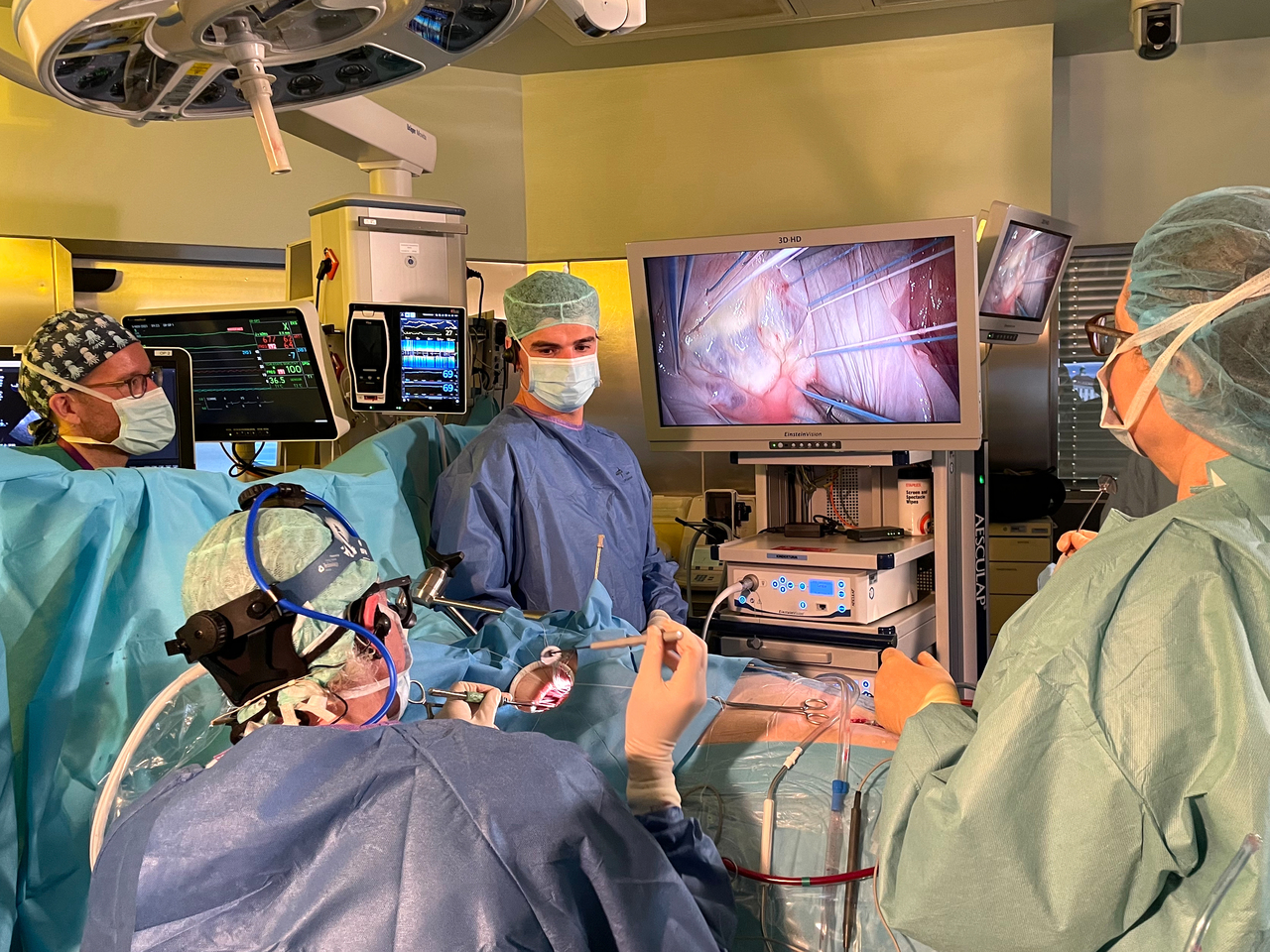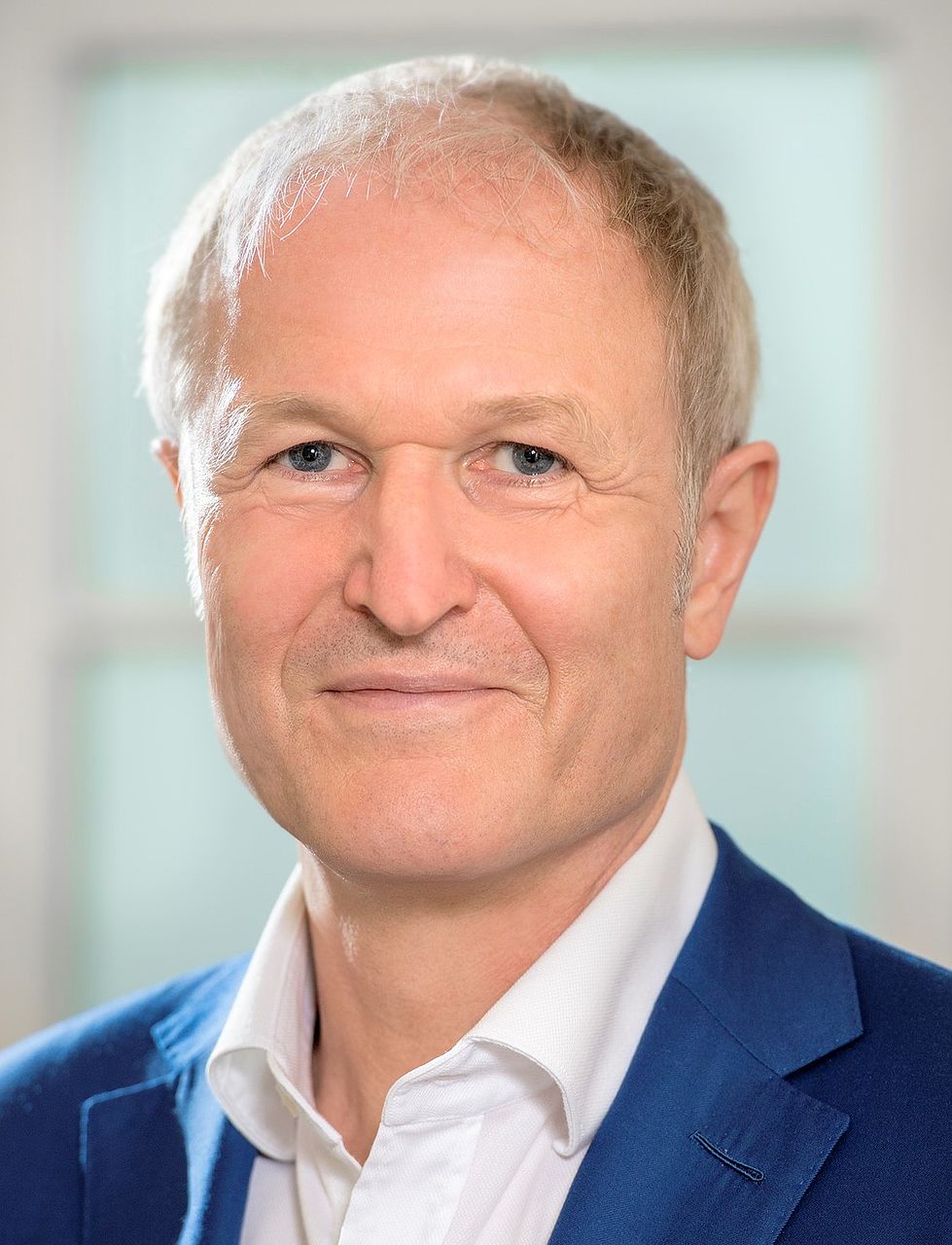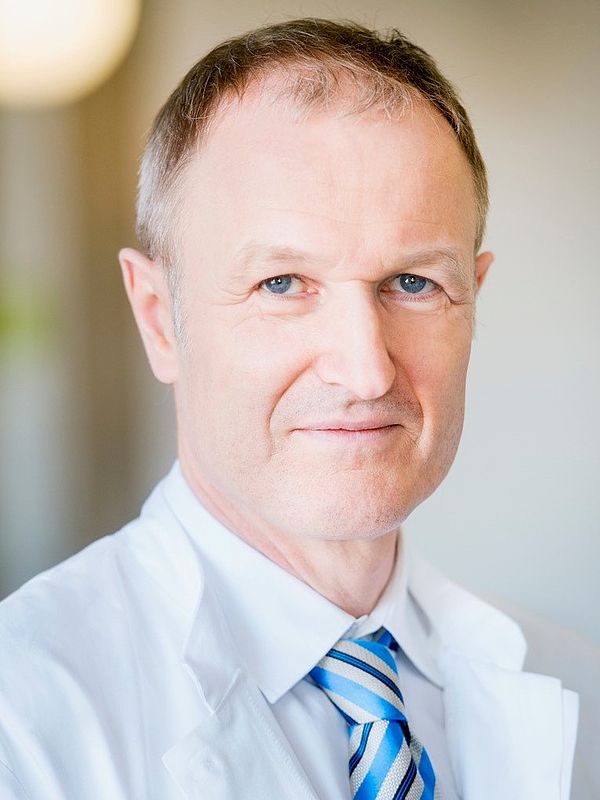"While it is undisputed that severe tricuspid valve insufficiency should always be treated when the mitral valve is replaced or repaired, it is not clear that a pacemaker is necessary. In the case of a moderately leaking tricuspid valve, there have been no scientific data to date. It is therefore handled very differently," says Prof. Volkmar Falk of the German Heart Center Berlin, who led the German arm of the CTSN-TVR study.
Both valves are often defective together
The study examined 401 patients with a slightly damaged tricuspid valve and a leaking mitral valve. Both valves are often defective together. This is because the tricuspid valve does not close properly can be the result of a leaking valve in the neighboring left ventricle, the mitral valve. Blood then backs up into the lungs and to the right ventricle, which can also affect the tricuspid valve. If the mitral valve is tight again, this can relieve pressure on the tricuspid valve.
Patients benefit from simultaneous treatment
The study's initial results speak in favor of simultaneous intervention: in about 10 percent of patients in whom only the mitral valve was replaced, the tricuspid valve insufficiency progressed in the first two years of follow-up, and the patients needed another surgery or died. If both valves were treated, this combined endpoint occurred in only about 4 percent of patients. The difference was most evident for the progression of tricuspid regurgitation, whereas mortality was not different.
However, the advantage of the combined valve procedure came at the cost of a significantly increased pacemaker implantation rate. Fourteen percent from the "double valve group" received a pacemaker while still in the hospital, compared with only 2.5 percent in the mitral valve group. This complication can arise because when a new tricuspid valve is implanted, work is done near the conduction system that transmits the electrical impulses of the sinus node from the atrium to the ventricles. "We know that this depends on the surgical technique, among other things, and we will investigate under which conditions the cases occurred and how this can be improved," Falk said.
Long-term follow-up to yield further insights
The study was preceded by a comprehensive and careful classification of tricuspid valve insufficiency using clinical and imaging parameters. "We all had to have the same understanding of moderate tricuspid regurgitation to get meaningful scientific results," Falk emphasized as an added benefit of the study. In this regard, the collaboration with the highly specialized Cardiothoracic Surgical Trials Network (CTSN) benefited greatly, he says. The study involved partners from the United States, Canada, and Germany, with Germany contributing 20 percent of the patients.
The researchers hope to gain further insights from following up with patients for up to five years. "Only then will we see how the different surgical methods affect the patient's condition in the long term," Falk said.
Study:
Evaluating the benefit of concurrent tricuspid valve repair during mitral surgery (CTSN-TVR-DZHK14).
dzhk.de/forschung/klinische-forschung/alle-studien/studie/detail/ctsntvrdzhk14/
Publication:
Concomitant Tricuspid Repair in Patients with Degenerative Mitral Regurgitation. Gammie, JS., Falk, V., et al. NEJM, 2021 Nov 13. www.nejm.org/doi/full/10.1056/NEJMoa2115961
Scientific Contact:
Prof. Volkmar Falk, German Heart Institute Berlin, Tel: 030 4593-2000, fallk(at)dhzb.de
Press contact:
Christine Vollgraf, German Heart Institute, Head of Communications, Tel: 030 3465 52902, christine.vollgraf(at)dzhk.de



